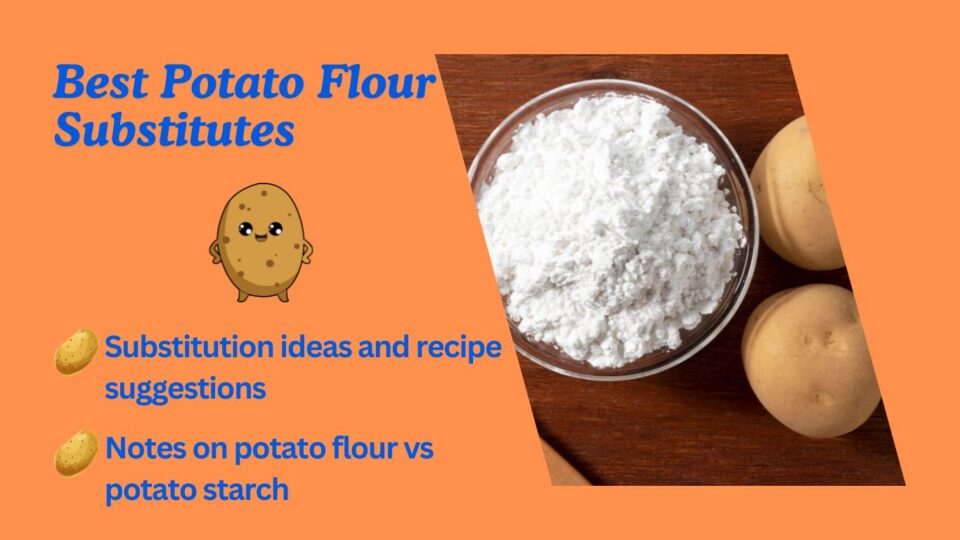Getting a useful potato flour substitute often will depend on the recipe you’re working with. After all, potato flour is a versatile food ingredient that fulfills many roles from its use in baking to frying, and general cooking.
The substitute chosen must be something that comes in close to the use and qualities of potato flour for the intended recipe and cooking method. In this article, we’ll discuss these details to find the best alternative that you can use.
However, for a quick overview, conventional alternatives to potato flour are potato flakes, mashed potatoes, instant potatoes, some starches (e.g. corn flour and tapioca flour), and some flours (e.g. rice flour or all purpose flour).
As you may have noticed, that list has quite a wide variety of food categories. And that’s partially why the recipe and the intended use of potato flour guide our choice of substitute.
So, let’s get to the details.
Table of Contents
Qualities Of A Potato Flour Substitute And Things You Should Know
Potato flour finds a lot of uses in the culinary world. You could use it to thicken sauces (while adding a slight potato flavor), for baking where its moisture retention helps with amazing texture, for frying where it gives food a lovely and crunchy coating, for making mashed potatoes, and several other uses.
Clearly, it is a versatile product. It’s worth remembering that it’s made from dehydrated potatoes, so essentially, potato flour is cooked, dried, and ground potatoes. That’s why adding some water to the flour can take you straight to mashed potatoes.
Also, due to its ability to absorb and hold water, the flour can be a lovely way to thicken sauces or curries, without adding the empty calories that come with the use of starch.
Obviously, a substitute cannot do all this, so we have to pick substitutes that are suitable for the role. Starches, for example, could be used for frying or thickening sauces. Some starch or flour, or a combination, could be used for frying and baking uses. The combination of cornstarch/ cornflour and all purpose flour can work wonders for frying.
Therefore, the quality and use of the chosen food should be the key guiding factor when replacing or substituting potato flour.
It’s worth pointing out that potato flour is naturally gluten-free and is often used for products where avoiding wheat/gluten is important.
Understanding Potato Flour, Potato Flakes, Potato Starch, And Instant Potatoes
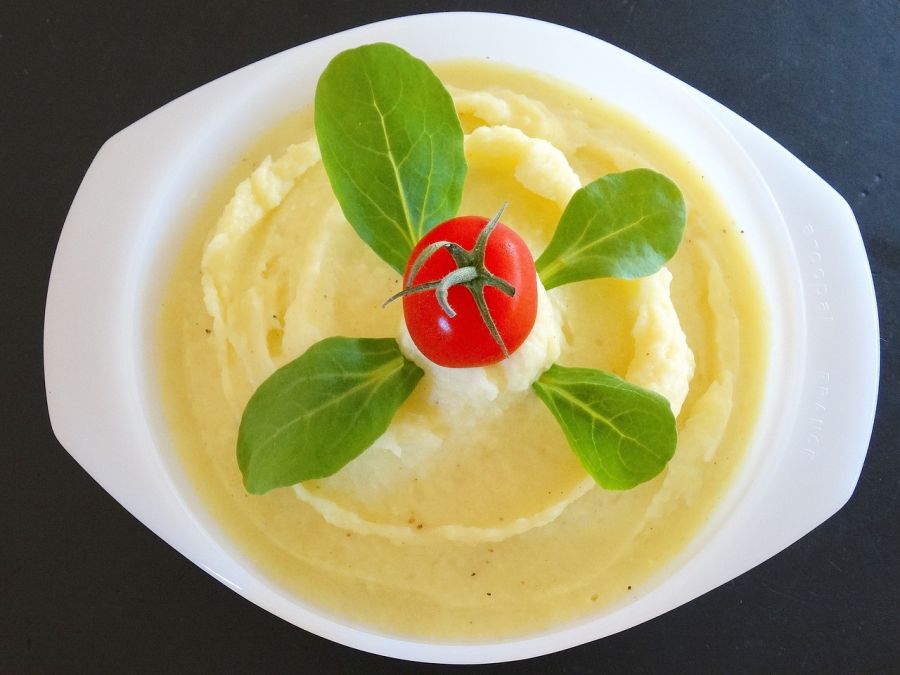
Versatile as the potato flour is, it’s also strained with the nomenclature and similar products in existence. So, let’s take a minute to clarify where all these things stand and what terms we’re using in this article.
Potato flour and potato flakes are essentially the same product with a difference in granularity. They’re made from cooked (boiled), dried, and processed potatoes.
As the name implies, potato flakes are available as flakes, while potato flour is granular like most flour. Other than that, these are both the same product.
Instant potatoes are another packaged food product that comes from the same group. These could be made from potato flour or potato flakes, and often include seasonings or other food products. Instant potatoes are usually sold as ready-to-eat meals, often requiring just the addition of water.
Potato starch, however, is where things get a little bit complicated. So, we’ll give it some extra attention here.
Potato Starch VS Potato Flour – The Case Of Mixed Identity
To be precise, potato starch and potato flour are different products. Potato starch is made by extracting starch usually during boiling potatoes. Since potatoes are rich in starch, there’s quite a lot to offer here.
Potato starch is flavor neutral and doesn’t bring the taste of potatoes along. It’s also devoid of the usual group of nutrients that are available in potatoes.
Potato flour, on the other hand, is made using cooked and dehydrated potatoes. It has the flavor and nutrients usually found in potatoes and can often be used in recipes that call for a potato, though there is an obvious difference here due to the changed texture.
The differences seem pretty straightforward, right? Yeah, but product nomenclature isn’t really a regulated space and names can get mixed.
Many people and businesses use the term potato starch and potato flour interchangeably to represent what we have described as potato starch. Think of an analogy with cornflour, which is a starch of corn, not the flour made from corn. Similarly, many businesses use potato flour to represent potato starch.
On the other hand, what we’ve described as potato flour in the discussion here, doesn’t get labeled as potato starch. That means the confusion is not total.
So, how does a consumer know what they’re buying? Look at the product ingredient labels.
If the ingredient label reads something like potatoes or dehydrated potatoes, you have what we call potato flour.
If the ingredient label reads something like starch or potato starch, you’ve got yourself the potato starch.
In case you have a product where the labeling isn’t clear, I’ll suggest buying a different brand. If you can’t easily find the ingredient label, it’s probably not a product worth buying.
Best Potato Flour Substitute Options
1. Potato Flakes
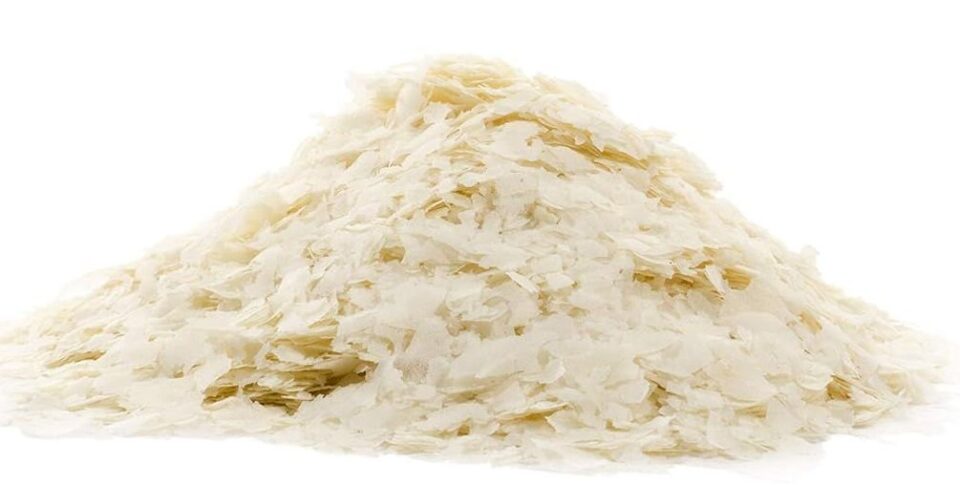
As we know by this point in the discussion, potato flakes are essentially the same thing as potato flour. Although the difference in granularity means that the substitution isn’t exactly straightforward.
Where granularity is important, like in baking or frying, you may want to grind the flakes first to a flour-like consistency for better use.
Also, for substitution, while the ratio here is 1:1 (equal parts potato flakes for potato flour), in this case, it has to be done by weight. Since the flakes are notably larger, they contain more air between them, unlike flour which is small, but closely packed. So, a substitution by weight removes the chance of mistakenly using the incorrect amount of flakes.
2. Instant Potatoes Or Instant Mashed Potatoes
Again, these are commercial food products that are essentially made either from potato flour or potato flakes. However, they usually contain seasonings, veggies, or other elements.
As such, if this product label is what you get your hands on, try getting your hands on plain instant potatoes, without any seasoning or salt. At this point, the ingredients are just potato flakes or potato flour and can easily be used for your food.
3. Starches – Arrowroot Flour, Cornflour, Potato Starch, And Others
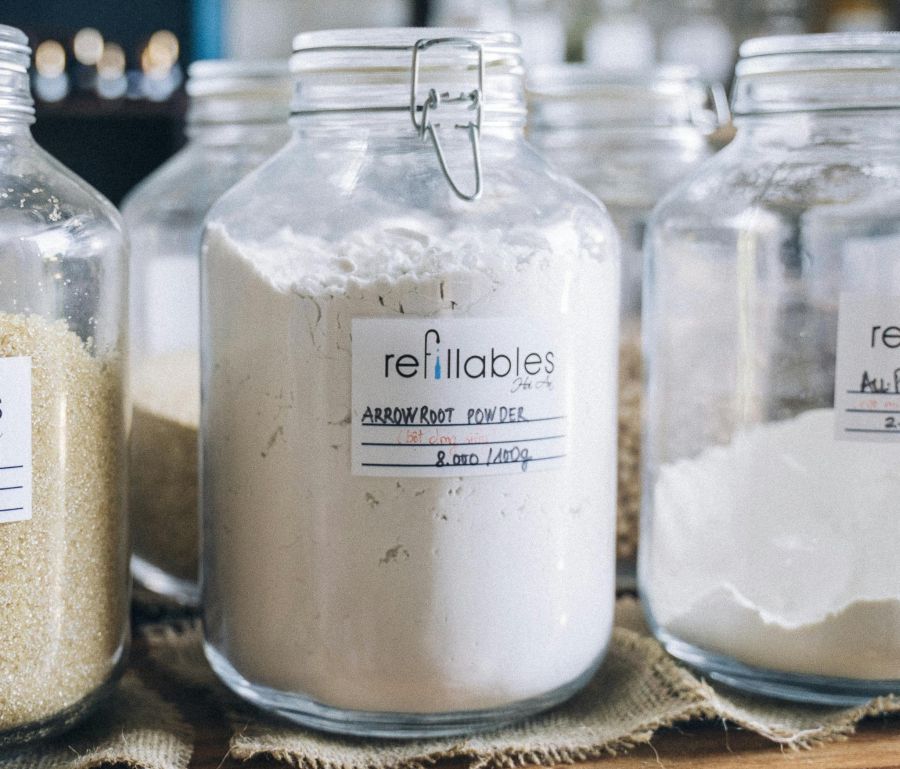
Starches are great for a whole lot of cooking needs and can work as excellent substitutes for potato flour when needed. They’re quite useful for thickening sauces and can work as well as potato flour in such a case. Most starches should be mixed in cold water before being added to the food.
You could use the most common types of starch to replace potato flour in a sauce. Cornflour works wonders, as does potato starch, tapioca flour, or arrowroot flour.
Many of these starches also work great for frying food and giving it that wonderfully crisp exterior. Cornflour is the most commonly available starch and often the preferred choice for such a substitution. And it works pretty well. If you’re not averse to gluten, you could also use a little bit of all-purpose flour along with cornstarch.
Using one quarter of all purpose flour and three quarters of cornflour works great for frying recipes and is a suitable alternative to potato flour.
Arrowroot flour is also a great choice and can handle high cooking temperatures for a relatively longer time. In this case, it performs better than potato starch, though it doesn’t absorb as much water.
There are some uses in baking as well, especially when a binding agent is needed for gluten-free baking. Xanthan gum might also be used. With its higher binding power and greater water absorption, start with less than half the amount of potato flour. Arrowroot flour and cornflour are also useful potato flour substitutes in baking.
4. Flours – Coconut Flour, All Purpose Flour, Rice Flour, And Others
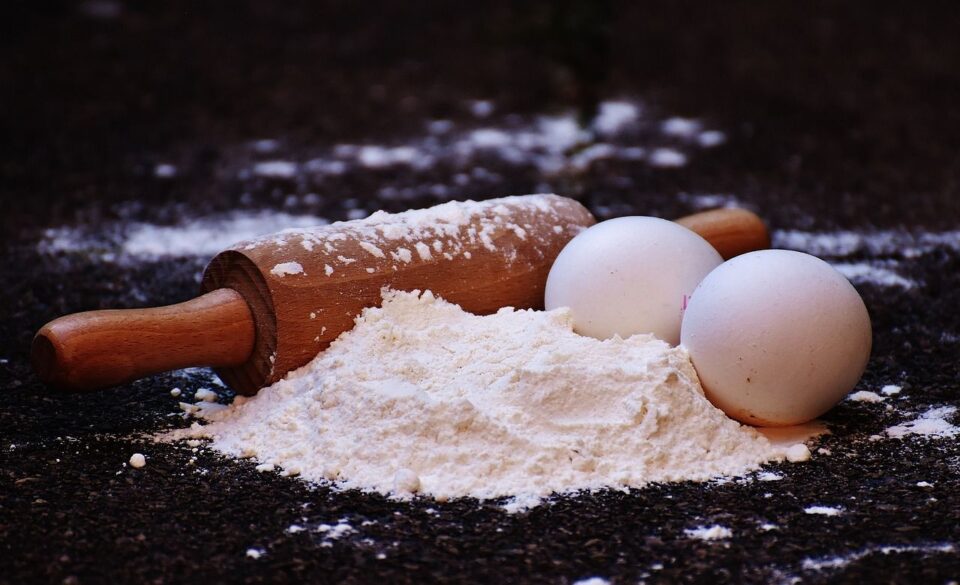
Sometimes you need a conventional flour to replace potato flour for your cooking needs. This is especially true for baking, where another flour might be the most desirable option. Besides, some flours can also be used for thickening sauces or for coating the food before frying.
All purpose flour would be an excellent substitute for potato flour in most baking requirements. However, it obviously is not gluten-free (which is one of the reasons potato flour is preferred). Additionally, all purpose flour can’t absorb the same amount of water as potato flour, so that wonderful moist touch in baked goods might be lost. In some cases, all purpose flour might also be used for thickening sauces, though starches will work much better.
Rice flour is another excellent option with its more neutral flavor and by virtue of being gluten-free, but it lacks as a binding agent. It cannot absorb as much water as potato flour, but it does a decent-enough job.
Using coconut flour could work, but there will be a notable change in flavor, with the more pronounced coconut flavor coming in to replace the potato flavor. However, coconut flour doesn’t absorb much water, so there might be the need of a starch to absorb water for that nice, moist feel in baked goods.
Quinoa flour is an increasingly popular modern favorite and it can work as a substitute for potato flour in some recipes. It is protein-rich, can be a good binding agent, and adds that nice nutty flavor to baked goods. Though its skill in baking is remarkable, you could also use quinoa flour as a thickening agent for sauces and soups.
5. Mashed Potatoes
Using mashed potatoes in place of potato flour seems natural. However, in practical use, this is a dicey, if not difficult substitution. Theoretically, if you add water to potato flour, you can get decent and unseasoned mashed potatoes. But if your recipe requires addition of water to potato flour, it doesn’t naturally follow that mashed potatoes would work as well.
When baking bread, you can still use mashed potatoes in place of potato flour. However, the substitution ratios can go haywire easily since proper water content is difficult to manage if you’re working with mashed potatoes. It can still work, but there are chances your bread will collapse.
If you follow a basic recipe for mashed potatoes, some experimentation might still pave the way for better results in their use as a substitute for potato flour in baking. Although if you must use mashed potatoes for baking, you might as well consider a recipe like this one, purpose-made for the use of mashed potatoes in baking bread.
Working With Substitutes Or Alternatives For Potato Flour In A Recipe
Versatile and wonderful as an ingredient that potato flour is, sometimes it becomes necessary to substitute it in a recipe. However, there is no one-size-fits-all approach when substituting this versatile ingredient. Instead, we have to consider the specific use and role it plays in a recipe and then work on a substitution.
Potato flakes can be an exact substitute for potato flour since they’re pretty much the same thing in a different form. For all other uses, we can use starches and different flours in a combination or separately depending on the recipe.
A careful substitution and perhaps some willingness to experiment with your culinary requirements can pave the way for a delightful recipe.

